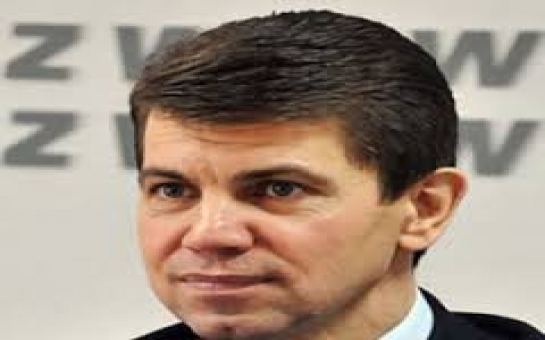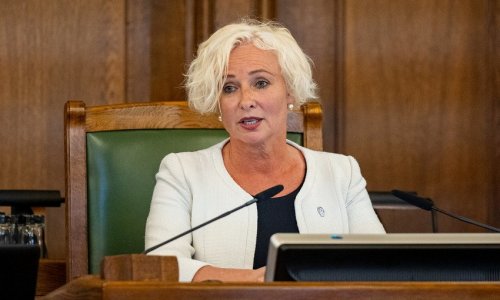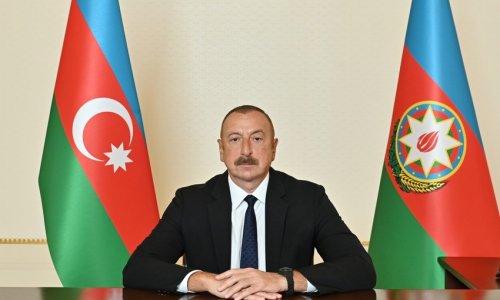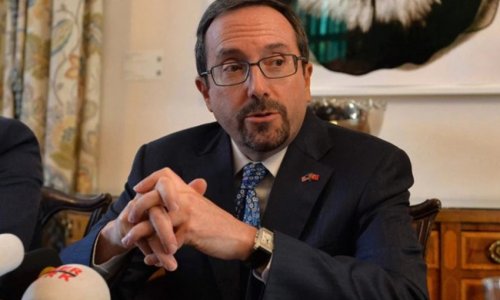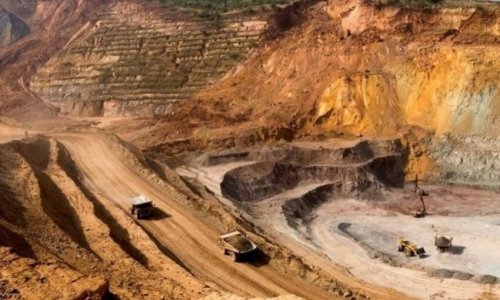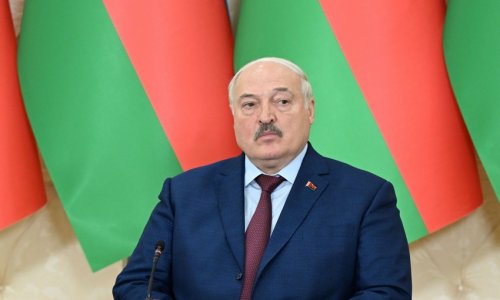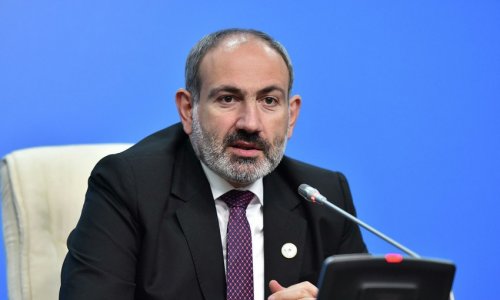Ukraine is on the verge of a civil war. Some Western political analysts describe Ukraine as a “new Afghanistan” where a conflict has been provoked by Western powers to undermine Russian influence. ANN's Kamal Ali talked about this and other issues in an interview with Aleksandr Mishchenko, the Ukrainian ambassador to Azerbaijan.
ANN: All eyes in Azerbaijan and the world are obviously on Ukraine. What is your assessment of the situation in eastern parts of your country?
Mishchenko: I think the demands of the separatists that the eastern regions break away from Ukraine because of the alleged persecution of the Russian-speaking population are clearly artificial and false. I think no one even in Russia believes this old narrative. Meanwhile, the gap is widening between the position of the Kremlin, which is allegedly seeking to protect the “oppressed” people of eastern Ukraine using unclear means, and that of the international community, which cannot find any evidence of persecution of the Russian-speaking population by the Kiev government. It is becoming more and more evident that Moscow’s claims are groundless.
We all are witnessing the attempts of the Kremlin to implement its aggressive imperial policy of invading a sovereign country which wants to be free from any outside influence. You may ask why is it that Russia has become so aggressive against Ukraine now? This is because Ukrainians today have come to believe that their future lies in integration into Europe and European values and not in nostalgic feelings about the former Soviet Union. This belief has never been so strong.
I must say that destructive activities by former Ukrainian President Viktor Yanukovich and his inner circle are also playing a part in the mass disorders in the east of the country. According to official reports by the Ukrainian Prosecutor-General’s Office, Yanukovich and several former high-ranking Ukrainian officials, which are currently on the international wanted list, took $32 billion with them when they fled to Russia. This is the money that was stolen from the Ukrainian budget and now apparently being fed to the destructive elements in Donetsk, Slavyansk, Kramatorsk and Lugansk.
It is beyond any doubt that the former leaders of Ukraine that are now based in Russia are pushing our people into a civil war by the slogans of federalization, which they claim is the only way out of the crisis.
ANN: How likely is the Ukrainian presidential election to be hampered by the unrest in the east of the country? What is the prospect of Ukraine’s federalization?
Mishchenko: From the legal point of view, there are no obstacles to holding the election on the day it is planned for. The conduct of the election campaign fully complies with the constitution although it is being held in difficult conditions. All presidential candidates have already started campaigning.
However, as it appears, it is the presidential election that concern Russian ideologists most. If the election goes smoothly and Ukraine elects a new president, the Russian will lose their “legitimate” president, Yanukovich, whom the Kremlin manipulates and uses for destructive purposes in Ukraine.
Russian statements that they will not recognize the outcome of the election are also part of a pre-planned scenario, according to which, everything that happens in Ukraine without Russian “orders” has no right to exist.
As for the issue of federalization, this too has nothing to do with the current situation in Ukraine. It is clear why Russia wants to see a federal state in Ukraine. But what is federalization going to bring to ordinary Ukrainians, including those living in the south-east of the country? There is no answer to this question.
In talks at all levels, the government in Kiev has said it is ready for discussions on expanding the powers of regional authorities and municipalities. To give more powers to local authorities, Ukraine does not have to be a federal state. If it is about improving the living standards in Ukraine, you have to stabilize the situation in the country, build a more competitive economy that does not depend on one supplier of energy. You also have to consolidate public opinion around the territorial integrity and sovereignty of Ukraine. Therefore, federalization is a problem that has been made up for Ukraine by the Kremlin.
ANN: What does the problem of Nagorno-Karabakh have in common with that in Crimea and Ukraine as a whole?
Mishchenko: All conflicts in the post-Soviet space have common features, as well as differences. It is some political forces and not entire nations that are behind the Nagorno-Karabakh conflict and the annexation of Crimea by Russia. For forces like these, their political ambitions are more important than anything else. International law and the fate of peaceful residents are issues of secondary importance to them. It is the residents of a particular region that suffer from such conflicts and not those who make decisions that cause the conflicts. It is ordinary people that suffer because the civilized world does not recognize their separation from a country and they end up in international isolation, which brings about economic hardships.
Politicians like these use the principle of self-determination for their own interests. If you take the right to self-determination apart from the principle of territorial integrity of countries, that leads to catastrophic consequences as we saw in the examples of Nagorno-Karabakh and the annexation of Crimea.
The international community has come to realize that conflicts like these should not be viewed as local conflicts as they threaten the very world order. This explains why the international community has reacted so strongly to Russia’s actions in Ukraine.
It is clear that today there is no mechanism for the implementation of resolutions passed by organizations like the UN, the OSCE and the Council of Europe. There will be rule of force instead of rule of law unless such a mechanism has been developed.
Bakudaily.az

